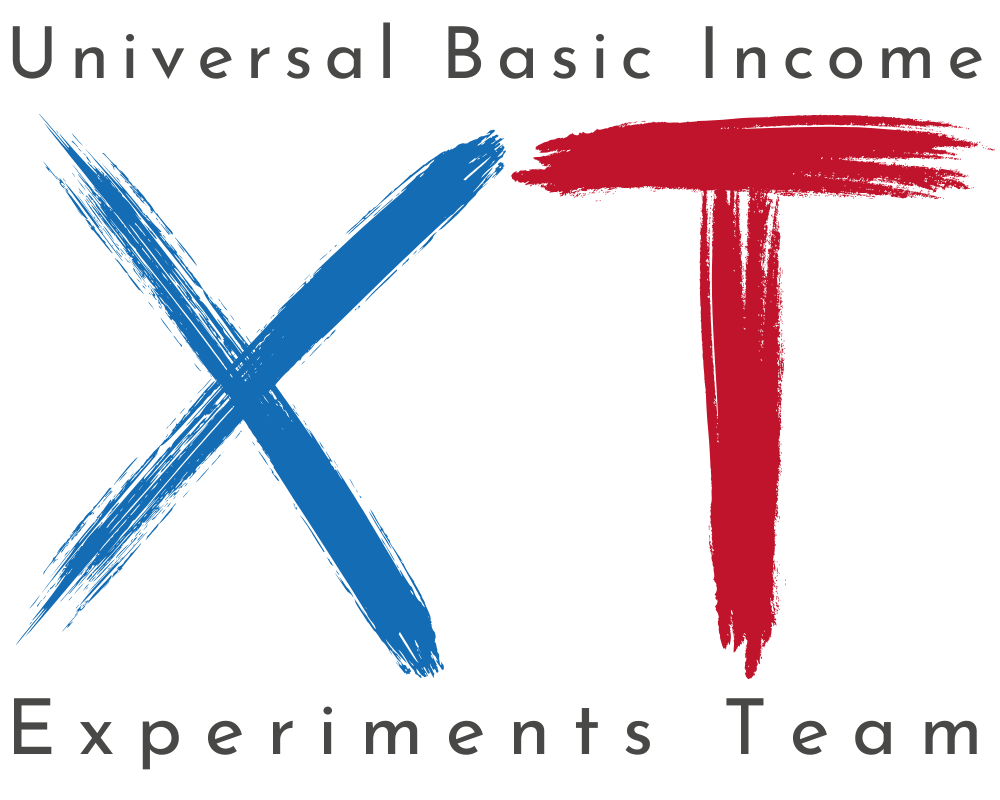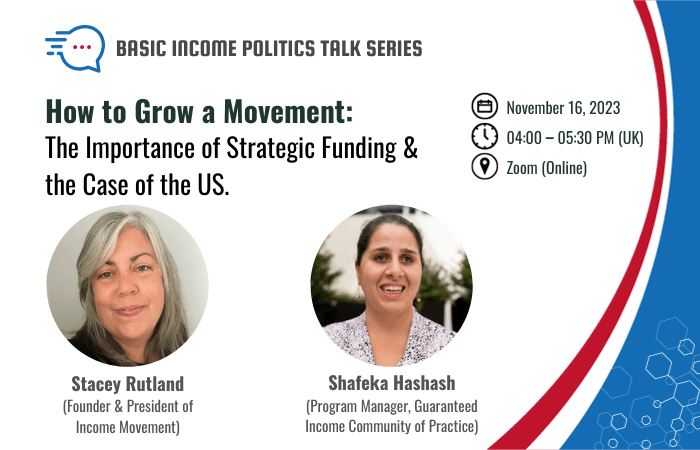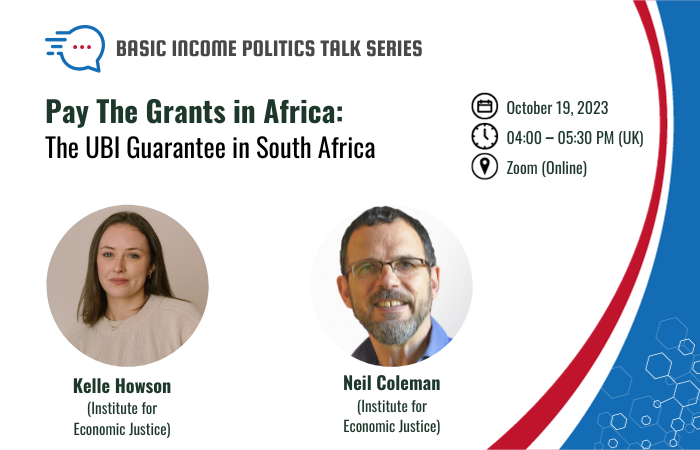UBI Experiments Team (UBI-XT)
Although research and policy interest in UBI has skyrocketed in recent years, resulting in significant increases in funding for UBI pilots, no global platform has yet been established for sharing UBI pilot findings, creating community links across the piloting field and supporting researchers in engaging effectively with policymaker audiences. The UBI Experiments team aims to remedy this by setting up and curating the world’s first global network of UBI piloters.
Next steps
We will begin by launching a monthly newsletter in the Summer of 2023. It will be shared with the UBI piloting community and will feature updates on recent research, policy developments, potential gatherings, publications, and opportunities for collaboration. Then we will host a quarterly online seminar series for piloters to share recent findings and discuss ideas and developments in their work. In late 2023, the team will host a FRIBIS Winter School entitled ‘How to build a pilot’ for students, researchers, and piloters. This will expand on work done in the one-day Summer School at FRIBIS in July this year. Finally, the project will host the world’s first ever conference of UBI piloters at FRIBIS, in Summer 2024.
News
Starting in October 2023 and continuing monthly on every 3rd Thursday, join us for a global exploration of Universal Basic Income (UBI) politics, hosted by the Bath UBI Beacon and Freiburg Institute of Basic Income Studies (FRIBIS), in partnership with the Basic Income Earth Network (BIEN). Experts from around the world will share insights on UBI policy, movement building, and research.
Extended Information
The contemporary politics of universal basic income (UBI) conjures up a paradox. The level, breadth and sophistication of policy attention afforded to UBI is as impressive as it has ever been, with organisations such as the IMF and World Bank engaging with its potential to transform social protection. Experiments and pilots have emerged all over the world in Finland, South Korea, Kenya, Brazil and cities all across the US, while movement building has grown at an impressive rate in many countries. Yet, in terms of tangible policy development, progress has often been slow or non-existent. The introduction of a nationwide UBI scheme still eludes us and many social security systems have seen increasing levels of conditionality and means-testing rather than steps in a more universal direction. It is the perfect time for a global stock-taking of the opportunities and challenges facing UBI advocates, reflecting on policy successes as well as failures, and to ask the important questions needed to develop strategic thinking for building (inter)national movements and getting policy wins.Hosted by the new Bath UBI Beacon and Freiburg Institute of Basic Income Studies (FRIBIS) through their Experiments Team collaboration, this online seminar series will invite people engaged in policy experimenting, movement building, research and activism from every corner of the globe to present their work and experience and reflect on what this means for the politics of basic income. Speakers will cover topics as diverse as experimentation, legislative processes, managing the media, fundraising, coalition building, community outreach and public opinion. The seminars will be open to all who have an interest in basic income and social policy more widely and will have a sizeable Q&A, allowing for discussion and debate. Seminars will be recorded and posted online afterwards.
Events will be scheduled for 90 mins and chaired alternately by Drs. Neil Howard and Joe Chrisp. If the event has a main speaker, presentations will last roughly 20 minutes followed by an hour of Q&A. For panels of 2-3 speakers, presentations will last 10 minutes each followed by an hour Q&A. Featuring panel contributions from Black Sash and Pay the Grants.
📅 Schedule (tentative):
Oct 2023 #PayTheGrants: The Universal Basic Income Guarantee in South Africa.
Nov 2023 How to Grow a Movement: The Importance of Strategic Funding & the Case of the US.
Dec 2023 What has happened in Catalunya?
Jan 2024 Basic Income and Reparations. Movement for Black Lives.
Feb 2024 Basic Income, De-Growth and Climate Politics.
Mar 2024 International Aid and the Politics of Unconditional Cash.
Apr 2024 UBI and UK Party Politics.
May 2024 UBI in CEE countries: Attention, Strategies and Reforms.
Jun 2024 How Much Public Support for Basic Income Is There?
Jul 2024 The Case of Marica in Brazil.
Aug 2024 The Case of India.
Sep 2024 The Policy Impact of Basic Income Experiments.
Oct 2024 The Case of Canada: Ontario, Climate Action Incentive Payment and COVID.
Nov 2024 What Happened in Iran?
Dec 2024 Welsh Pilot Results and Where from Here?
Jan 2025 UBI and Trades Unions.
Events
Past Events:
Research Team
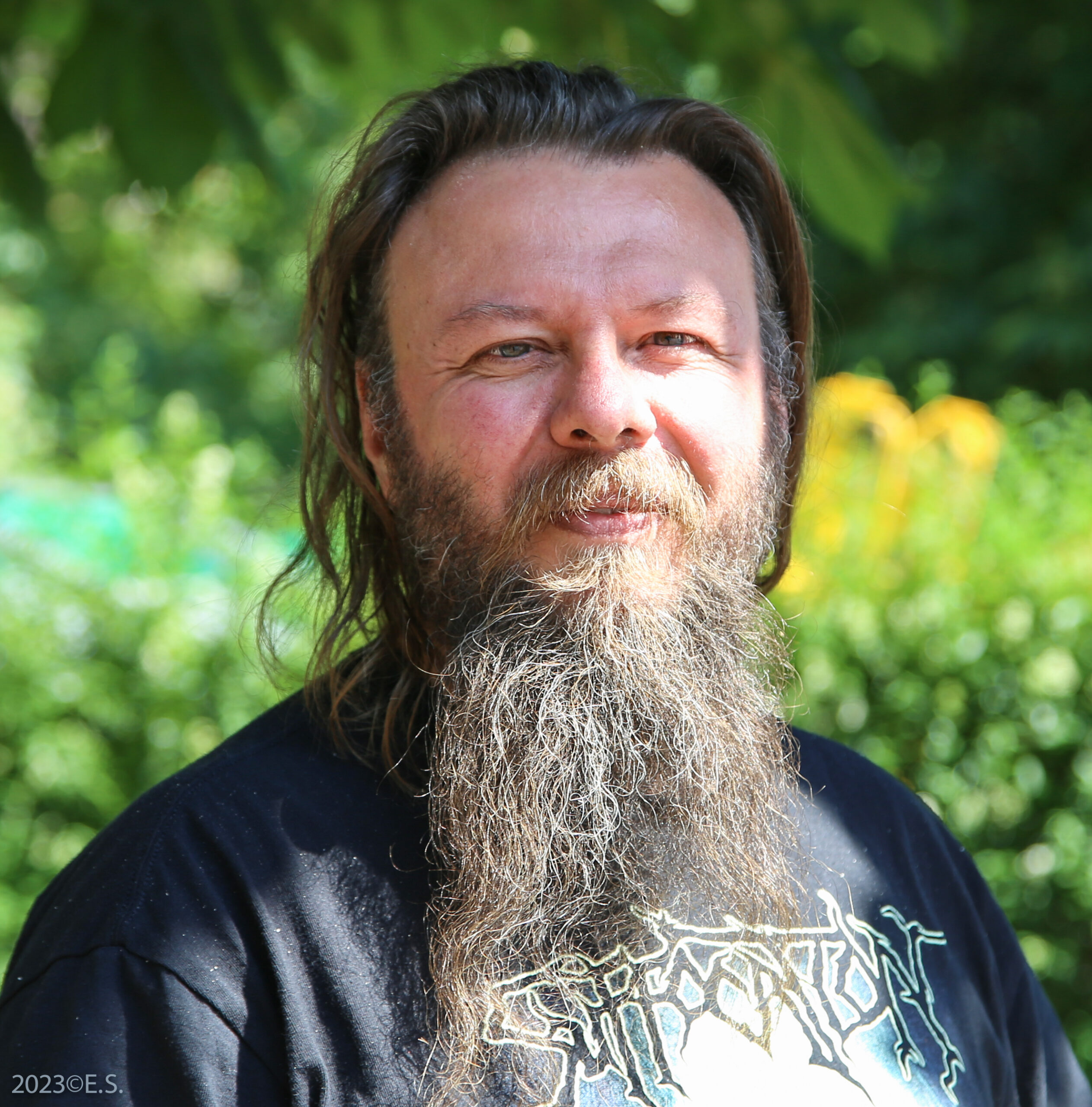
Prof. Jurgen De Wispelaere
is a political theorist turned public policy scholar who has specialised in the political economy of basic income. He is a visiting professor at the Götz Werner Chair of Economic Policy & Constitutional Economic Theory, University of Freiburg. Previously he worked at research institutions in Latvia, Canada, Finland, Spain, Ireland and the UK. He has published extensively on the politics of basic income and is the co-editor of four volumes and is also a founding editor (with Karl Widerquist) of the interdisciplinary journal, Basic Income Studies. He is currently working on two research projects: exploring the policy impact of the recent wave of basic income experiments and examining the role of basic income in emergency situations.
Jurgen is also a big fan of death metal and commutes between Valdivia (Chile) and Freiburg im Breisgau (Germany).
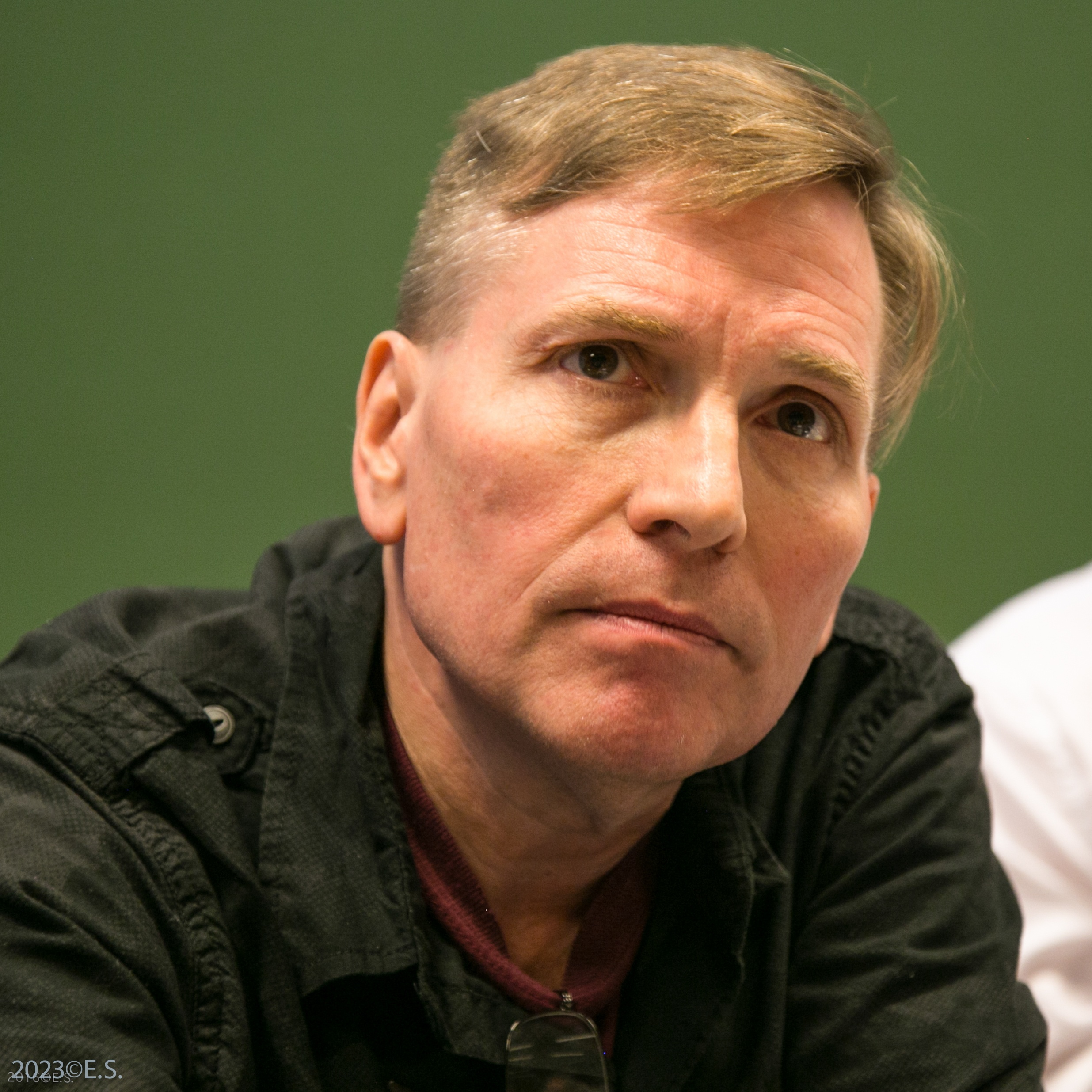
Prof. Karl Widerquist
is a political philosopher at Georgetown University in Qatar. He is the co-founder of the U.S. Basic Income Guarantee (USBIG) Network, which he chaired from 1999 to 2010, before becoming co-chair and later vice-chair of the Basic Income Earth Network (BIEN) until he stepped down in 2017. Widerquist is best known as an advocate of basic income and is a familiar participant at UBI events all around the globe. He has written dozens of articles on the subject and has authored and edited eleven books on the subject, including A Critical Analysis of Basic Income Experiments. He is also an interdisciplinary author of academic publications and has published in journals in fields as diverse as economics, politics, philosophy and anthropology. In 2021 and 2022, he was a visiting professor at the Götz Werner Chair of Economic Policy & Constitutional Economic Theory at the University of Freiburg, Germany. During Widerquist’s stay in Freiburg in 2022 Enno Schmidt filmed an interview with him about the ethics of UBI as well as a public lecture on the pre-history of private property.
Karl Widerquist is based in New Orleans (USA) and Doha (Qatar).
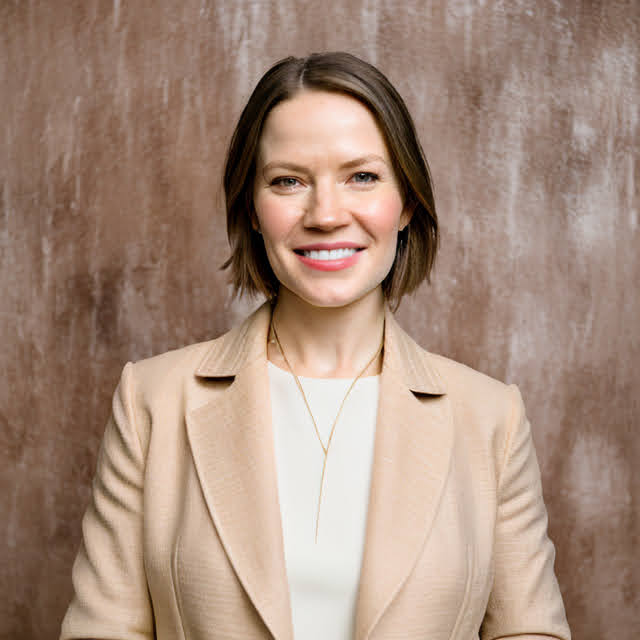
Leah Hamilton MSW, Ph.D.
is Principal Investigator of the Family Economic Policy Lab. She is an Associate Professor of Social Work at Appalachian State University, Senior Fellow at the Jain Family Institute and Faculty Affiliate at the Social Policy Institute of Washington University in St. Louis. She teaches social welfare policy and her research focuses on economic justice and basic income. Her book, Welfare Doesn’t Work: The Promises of Basic Income for a Failed American Safety Net was released in 2020. Currently, Dr. Hamilton is principal investigator for multiple basic/guaranteed income pilots in New York and Georgia. Her work has featured in multiple national publications, including the New York Times, the Wall Street Journal, the Washington Post, CNBC, The Atlantic, Forbes, National Public Radio, and Fast Company. She serves on the Policy Council for the Humanity Forward Foundation and formerly served on the board of the Basic Income Earth Network, BIEN. She was also President of the American Civil Liberties Union in North Carolina.
Dr. Hamilton lives in North Carolina. Click here to follow her on Twitter.

Nika Soon-Shiong
Doctoral Student, University of Oxford; M.A. African Studies, Stanford University; B.A. International Relations, Stanford University. Founder and Executive Director of the Fund for Guaranteed Income (F4GI) – a nonprofit organization launched to re-imagine the social safety net by decoding complex bureaucracy and building community-designed technology solutions that work. F4GI’s mission is to build new policy arenas where those who are intentionally excluded from welfare and economic systems are delivered their rightful share. Nika directed F4GI’s flagship pilot, the Compton Pledge, as well as the Long Beach Pledge, which expands the program across city lines. F4GI administers 12 pilot programs across the United States including the first GI program for currently incarcerated people. She is the Board Chair of One Fair Wage and sits on the board of the Compton Community Development Corporation and Committee to Protect Journalists. Nika is a doctoral candidate at Oxford University, where her research focuses on Aadhaar, universal digital infrastructure, and citizenship in India. Previously, she worked in the President’s Office of the World Bank to establish the Disruptive Technology Initiative.
Nika is based in Oxford, United Kingdom.
FRIBIS-Team-Coordinator
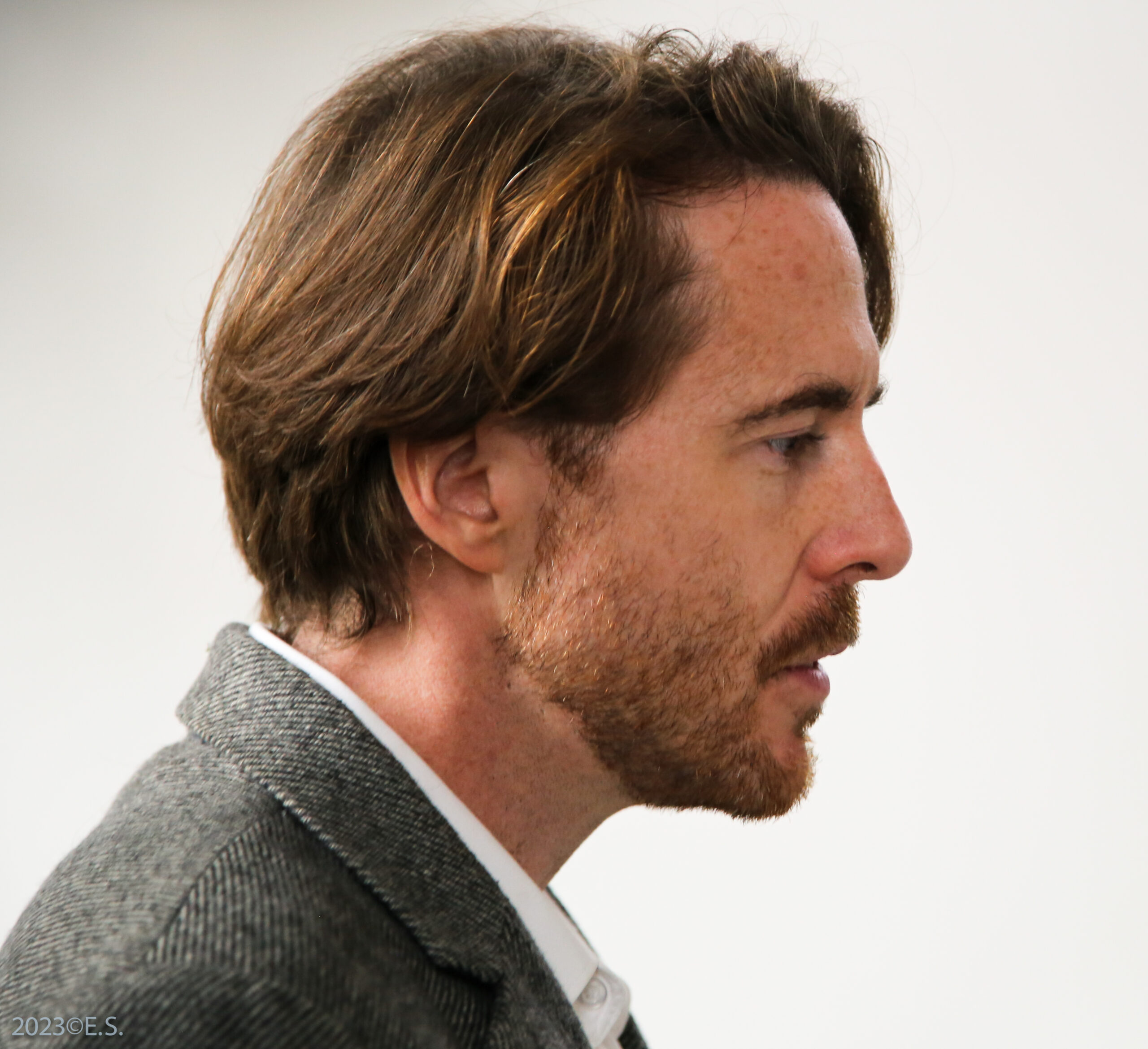
Dr. Neil Howard
is a development anthropologist turned social protection scholar. His work focuses on cash transfers, basic income, and basic income piloting. Currently he is co-directing a pilot in India and a sister pilot in Bangladesh. Both of these combine unconditional cash and community organising across entire slum communities in Hyderabad and Dhaka. Neil is a member of the Executive Committee of the Basic Income Earth Network and is the convenor of the UBI Piloters Network.
He lives in Bath (UK).
Contact: nph28@bath.ac.uk
Transfer Team
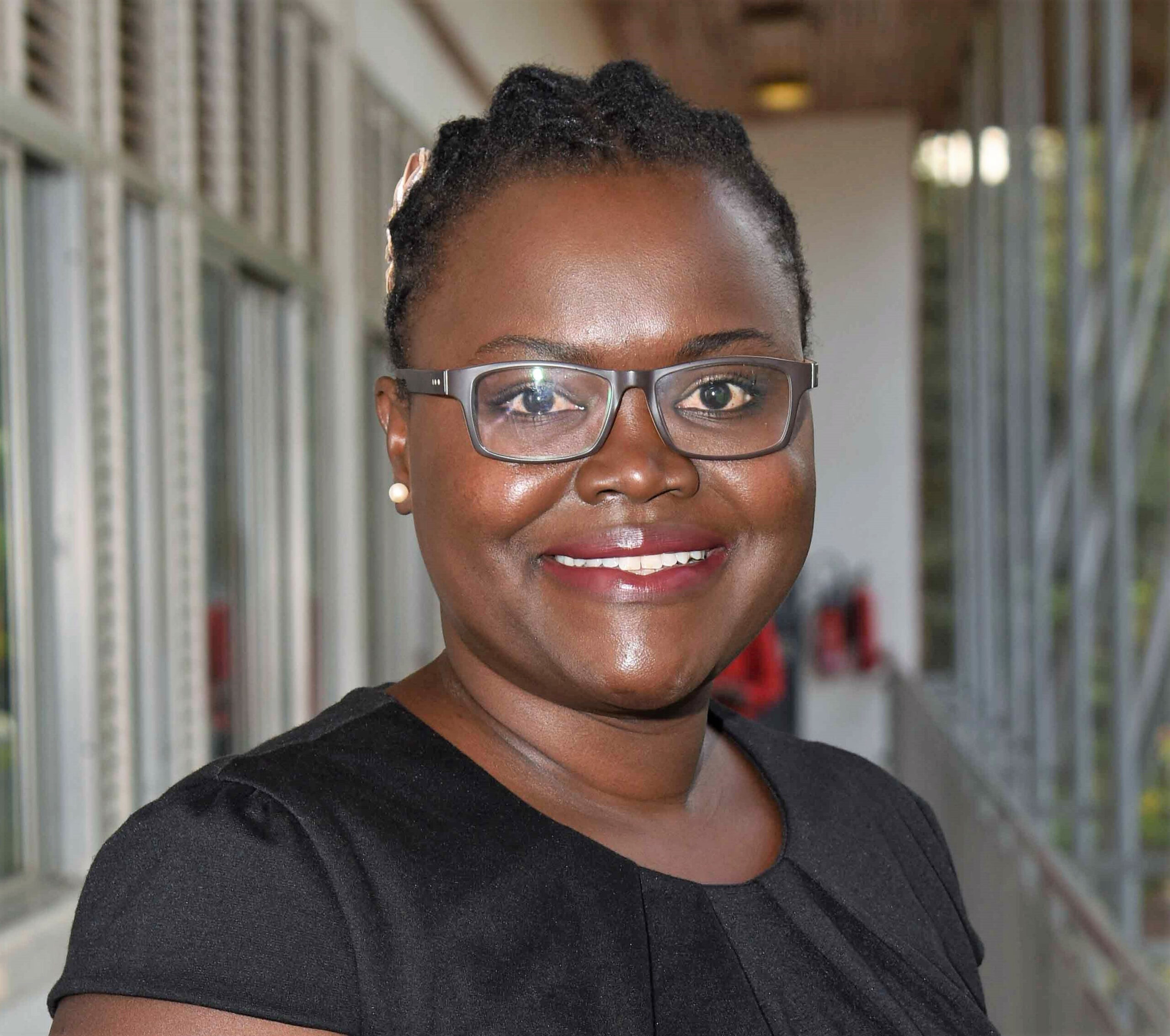
Dr. Miriam Laker-Oketta
is a medical doctor and researcher. She is the Research Director of Give Directly, by far the largest venture worldwide to transfer money as a basic income to the poorest households in many countries in Africa, as well as Asia and the USA. Dr. Miriam Laker-Oketta is a 2020-2021 Fellow of the International Women’s Forum’s Executive Leadership Foundation Program of the INSEAD Business School and Harvard Business School. She is director, chairperson and member of the board in numerous organizations and institutes. In addition to other degrees she holds an MAS in Clinical Research, Epidemiology and Biostatistics (University of California) and she has an MSc in Tropical Medicine and International Health (London School of Hygiene). She is the author of numerous other publications. Click here to view her presentation from the FRIBIS Annual Conference 2022.
Dr. Miriam Laker-Oketta lives in Kampala (Uganda).
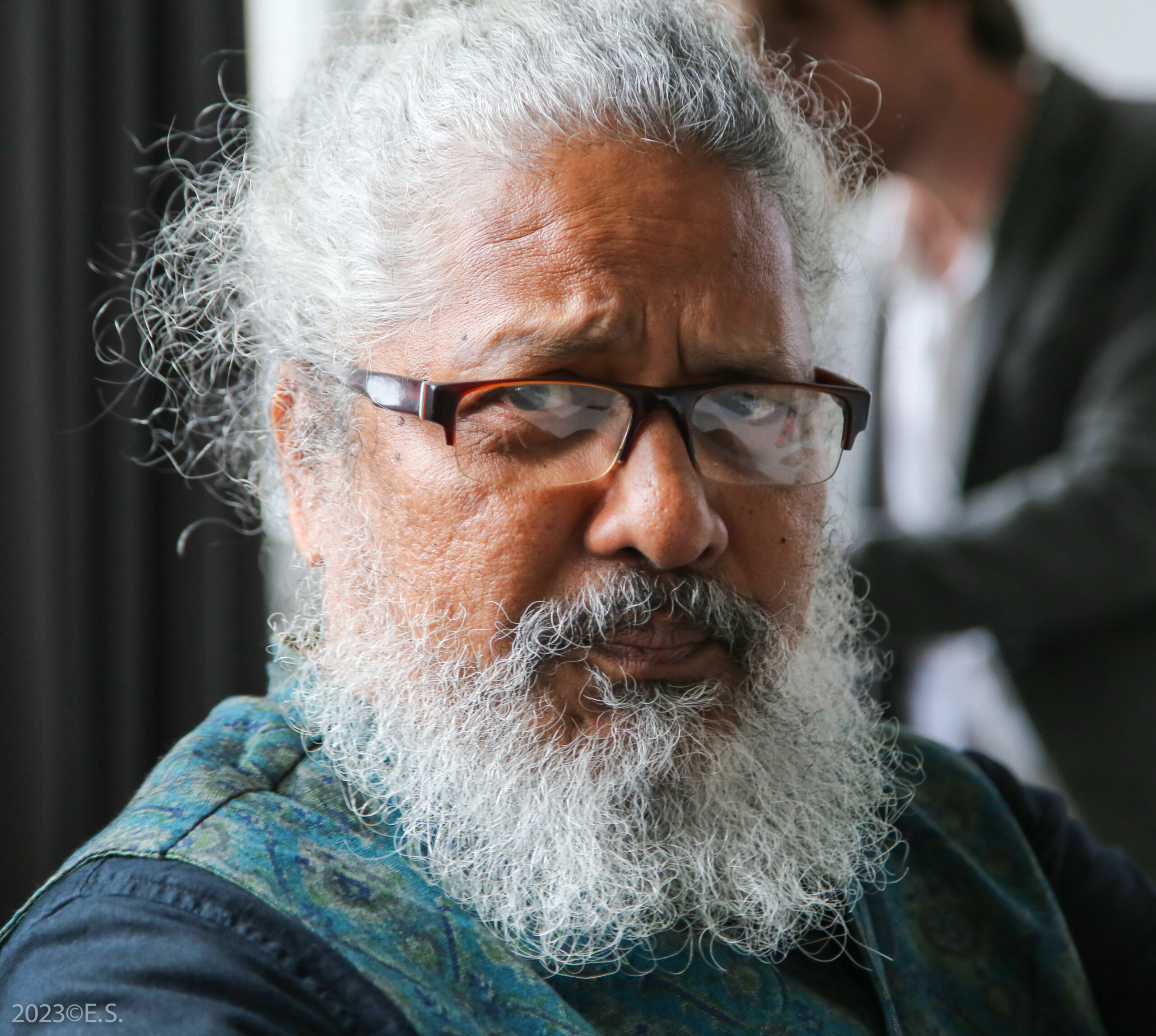
Dr. Sarath Davala
is chair of BIEN (Basic Income Earth Network) and coordinator of the Indian Network on Basic Income (INBI). He is co-author of the book Basic Income: A Transformative Policy for India. He was the research director of the Madhya Pradesh Basic Income pilot project (2011 to 2014) and the host of the BIEN World Congress in Hyderabad (2019). He currently co-directs WorkFREE, a basic income pilot project in Hyderabad with urban garbage collectors. Simultaneously, Sarath also directs a Basic Income and Care micro pilot project with transgender persons in Hyderabad. Click here to watch Sarath Davala’s lecture at FRIBIS Annual Conference 2022 at the University of Freiburg.
Sarath Davala is based in Hyderabad, India.
